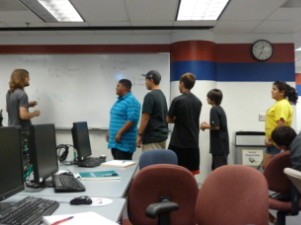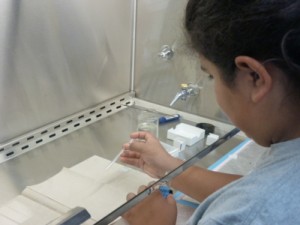|
|
|
Projects
-
Modeling Alternaria.
To correctly identify unknown samples of fungi, scientists need to spend
hours looking through the microscope, estimating parameters by eye. This is
very time-consuming and prone to mistakes. To make this process automatic
using smart computer software, we need good models for the various species of
fungi. The students
collected microscopic data
and used a
web tool
developed in the
Computer Vision Group to create
realistic 3D models.
In collaboration with
Dr. Barry Pryor's group.
-
Modeling Rice.
Scientists would like to link the morphology (structure) of domestic and wild
rice to its genetic and survival data to develop more resistant strains of
rice. To accomplish this, scientists need to examine many different species
and determine by eye what structural characteristics might be related to the
rice genome. To help make this process automatic, we need computer models for
various rice species. The students took
photos of several rice species from the University of Arizona green
houses and then used a
web tool
developed in the
Computer Vision Group to create
realistic 3D models.
In collaboration with Dr. Rod Wing's group.
-
Modeling Creosote.
Creosote is another important plant in southwestern ecology. We have been
inspired to include it as a modeling project due to interactions with
teachers from Empire High School participating in the
iPlant
Summer Teacher Fellows program organized by Lisa Howells and in conjunction
with
Dr. Travis Huxman's
lab.
|
|



